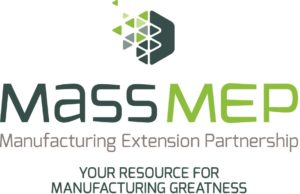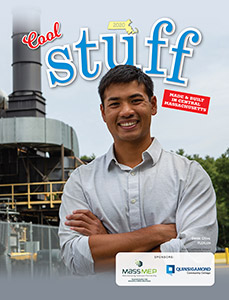Central Massachusetts is making a name for itself in the biotech industry, according to industry advocates and executives. At a Monday event sponsored by Worcester-based Massachusetts Biomedical Initiatives, important figures in the field lauded several decades of hard work, planning and growth.
“You look across the commonwealth of Massachusetts: Who knows how to do this? Which region as the native expertise, history, culture and understanding of how to manufacture complicated items?” asked Travis McCready, president and CEO of the state-backed Massachusetts Life Sciences Center, rhetorically. “One region came up over and over again: Central Massachusetts and the City of Worcester.”
The UMass Medicine Science Park next to UMass Memorial Medical Center and UMass Medical School is fully occupied, incubator Massachusetts Biomedical Initiatives is doubling its space at Gateway Park and the planned biomanufacturing park — to be named The Reactory — at the former Worcester State Hospital site is nearing construction.
WuXi Biologics is planning a 100,000-square-foot drug manufacturing facility at the park and is negotiating with landlord Worcester Business Development Corp.
McCready said he was tasked by Gov. Charlie Baker four years ago with giving him an honest assessment of the state’s life sciences industry and the need for continued biotech advocacy work.
The assessment was the state still needed to work to help the industry, and one of the most critical needs that came out of that assessment was manufacturing, McCready said.
Worcester’s historical manufacturing strength helped set in motion the work of several key agencies in securing 42 acres of vacant state hospital land eventually resulting in a bill allowing the state to sell the land to WBDC and the sale in 2017 and 2018.
Worcester’s other biotech successes like Gateway Park and the biotech firms like Abbvie choosing worcester were hailed, but work still needs to be done to beef up the industry’s workforce, build more affordable housing for those workers and create the infrastructure for those manufacturing and clinical testing operations, officials said.
Lisa Olson, the divisional vice president for Abbvie, overseeing the Chicago-based company’s Worcester site near UMass, said the region now needs the infrastructure to support the next step of drug discovery: clinical trials.
With Worcester’s biotech firms now able to develop and manufacture the drugs, there’s a critical need for local institutions to collaborate to allow for local human trials.
“If contract organizations can grow in the Worcester area surrounding this biotech innovation and manufacturing innovation … you’re just going to build an environment like we’ve seen happen in Cambridge,” she said.



